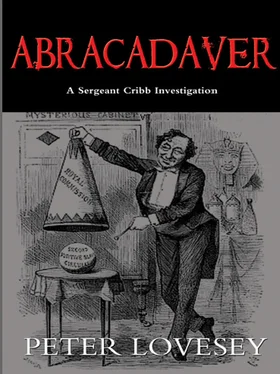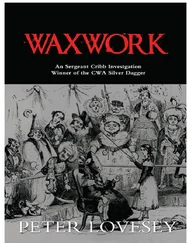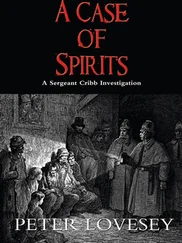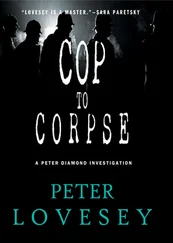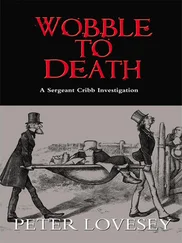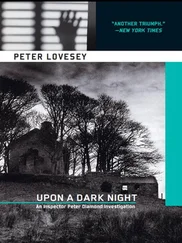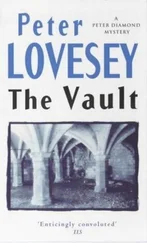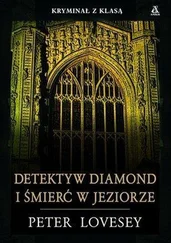P.C. Oliver was gone. And so, curse it, was the light. Seconds later the lamplighter passed with his pole and turned into Brook Drive. Major Chick was presumably back delivering mythical letters; you couldn’t see a blessed thing with the gas off.
Perhaps an hour later his nostrils began to twitch. A delicious aroma was being carried towards him by the breeze. Kidneys and bacon, he was certain. Devilish cruel to an empty stomach, tantalizing it with the smell of other men’s breakfasts. How long would he have to endure this?
Several of Albert’s neighbours had emerged before full daylight and started for work; no Sabbath for them. But the curtains remained drawn at the upper window of number nine. The better light brought one bounty: the sight of Major Chick, exhausted by letter-delivering, standing at the end of the road making a lengthy inspection of his bag, which was plainly empty. Interesting to see where he would go when the genuine postman arrived.
With dramatic suddenness Thackeray was alerted to the arrival in the street of a black four-wheeler that was driven the length of the cul-de-sac, turned with a grating of wheel-tread that raised sparks, and brought back to rein outside number nine, with enough noise to bring the whole road to the windows. A black-coated figure in a tall hat got out, glanced along the street, and turned back to say something to somebody still in the cab. While he talked, he was drawing on a pair of black kid gloves, smoothing the wrinkles fastidiously over unusually long fingers. He turned, and his face was in sharp profile: hawklike, the features taut with purpose. Presently he knocked at the door of Albert’s lodging and was admitted.
What now? Approaching any closer to the carriage would certainly give Thackeray away. His instructions were to observe, not to become involved. He wished Cribb were there and had seen that face for himself, as odious a set of features as any in Newgate.
A movement caught his attention. Albert’s curtains were drawn back, confirmation that the visitor was, indeed, for him. Thackeray gazed at the windows, abstractedly twisting a button on his jacket until the tweed itself was screwed out of shape. Of course intervention was out of the question. The caller might be a doctor, or Albert’s agent, or someone with a perfectly legitimate reason for being there. Patient observation was the only possible course.
Some ten minutes passed, and the visitor emerged alone and walked briskly to the waiting cab. Was his business with Albert done, then? Apparently not, for he called his companion, a smaller, bearded man, from inside the cab. They waited while the cabman unstrapped an item of luggage from the cab-roof and lowered it to them. It was a large, black trunk, empty from the way they handled it. Between them they carried it to the door of number nine and were admitted.
Thackeray frowned, baffled. An empty trunk. What on earth could Albert want with such a thing? And why should it be delivered by two men in top hats and kid gloves arriving in a cab on a Sunday morning? He waited in growing disquiet.
Farther up the road Major Chalk waited, making notes on the back of a letter. And the cabman, after descending to fit a nosebag to his horse, lit a pipe, leaned against his cab, and waited too. Three small boys came from one of the houses, walked up the road, looked hard at the Major, strolled back in Thackeray’s direction, stopped to study him too, stared speculalively at the asylum wall and then stationed themselves by the carriage.
At length the door of number nine opened. A man backed out cautiously, feeling for the step with his foot. He was supporting one end of the trunk as before, but now his movements were ponderous. His companion stumbled after him, clearly feeling the effects of descending the stairs. No doubt about it: that trunk now contained something of quite considerable weight. One of the watching boys solemnly removed his cap.
‘Under our very eyes, eh Constable?’
Thackeray started in surprise. Major Chick was at his shoulder. ‘Lor’ lummee—’
‘No need for hysterics, man. I spotted your cover two hours ago. Thought I was a postman, eh? Never take a blasted thing for granted, Constable, least of all the Postal Service. Now, look here, I don’t know what Scotland Yard’s planning to do about this infamous affair. Personally, I’m ready to pursue the scoundrels all the way to the Continent, if necessary. One of my orderlies, the lamplighter—surprised you again, eh?—has lined up a cab round the corner in Brook Drive. I’ve room for you if you want it.’
Thackeray decided at once. ‘I’m greatly obliged.’
‘Very good. I’ll be aboard. We must be prepared in case the blighters separate, though. Basic strategy. If either of ’em makes a break for it on foot you’d better give chase, and I’ll follow the four-wheeler. Otherwise, you can meet me at the end of the road. Agreed?’
‘Er—yes.’ He was almost constrained to salute.
The Major moved off at a gait unlike any postman’s, but the men with the trunk were occupied raising it on to the cab-roof and could not have noticed. Thackeray leaned heavily against the wall, assimilating the developments of the last few seconds. Perhaps he was staking too much on the Major’s co-operation. Could the man be trusted? But really, when he considered it, he had no choice. The sight of that trunk being slowly manhandled out of the house and on to the waiting cab had made a profound impression on him. There was an awful possibility that he shrank from accepting. All he was certain about was that it was now his duty to follow the cab and its load wherever it was driven.
Then to his amazement and unbounded relief the door of the house opened again and Albert appeared, walking with a stick and supported by a small, grey-haired woman, undoubtedly his landlady. With the cabman’s help he was manoeuvred up the step of the cab, not resisting in the least. Then the horse was deprived of its nosebag, the two trunk-bearers joined Albert inside, the cabman flicked his reins and the carriage moved away. The landlady stood at her door fluttering a handkerchief.
Thackeray felt an overwhelming sense of deliverance at Albert’s appearance in one piece. In spirit he was beside the landlady waving his deerstalker. Only when the cab was turning the corner did sentiment give way to more practical considerations. Heavens! Albert had been abducted in front of him!
‘Just one moment!’ He ran over to the landlady, knickerbockers flapping. ‘I am a police officer. Your lodger—’
‘Not my lodger no more, duck. He just left.’
‘Yes, I know that. Did he tell you where he was going?’
‘Sorry, love. He just paid his rent and went off with his two friends. What’s he done then? Got himself inebriated? It don’t surprise me, you know. They’re all like that in the theatre. Well, did you ever?’
The constable was already pounding up the road towards the waiting hansom. Major Chick leaned forward to help him aboard and they set off at a canter in the direction of the river. ‘Tickle him with the whip, cabby!’ the Major shouted through the aperture in the roof. ‘I’ve never known a hansom that couldn’t catch a growler. Give the beast a tickle and we’ll soon have ’em in sight again.’ He turned to Thackeray. ‘Nothing like a chase, Constable. Gets the old claret coursing through the veins, what? Got your bracelets with you? We’ll need ’em when we’ve run this lot to earth.’
‘My what?’ inquired Thackeray.
‘Bracelets, man. Handcuffs. You can’t take chances with a pair of assassins.’
So the Major had been deceived by the trunk, too. ‘I think I should explain something, sir. Albert is on board that four-wheeler.’
The Major laughed grimly. ‘At the twopenny rate on the roof, eh? And we have to pay a shilling. Of course I know he’s on board, Constable. I didn’t imagine those scoundrels had packed their trunk for a week at Brighton, not the way they carried it. Why, I’ve been a pall-bearer myself, a dozen times—’
Читать дальше
